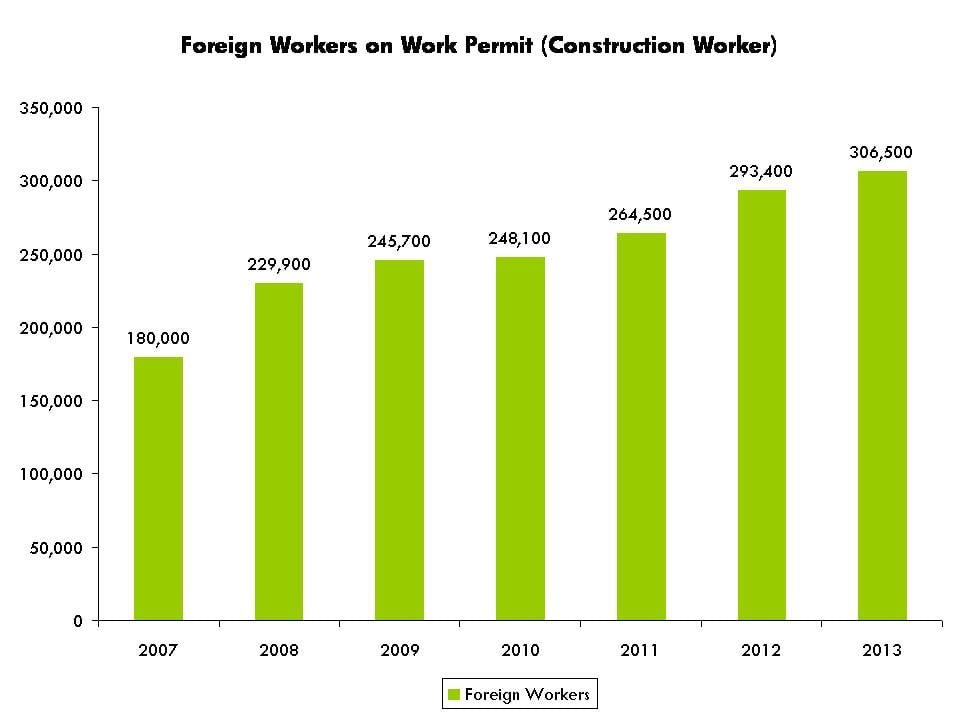Construction Workforce Training Singapore development is critical for the growth of the country’s construction industry. With an evolving built environment sector and growing technological demands, Singapore has implemented targeted initiatives to ensure its workforce is ready for future challenges. The government and industry-led programs aim to equip both local and foreign workers with essential skills, fostering a sustainable and competitive industry.
The Role of Construction Workforce Training Singapore
As of 2023, Singapore’s construction industry employed approximately 94,300 residents, a decrease from previous years. This decline underscores the pressing need to retain and develop local talent. Meanwhile, the industry relies heavily on its 415,000 foreign workers, further highlighting the importance of strengthening local Construction Workforce Training Singapore.

Training is not just a solution to workforce shortages; it is key to building a sustainable future. Upskilling initiatives such as the Workforce Training and Upgrading (WTU) Scheme ensure workers are equipped with modern skills. This program co-funds up to 90% of selected courses and skills assessments, making training more accessible for companies and their workers.
Government-Led Construction Workforce Training Singapore Programs
Singapore’s government has introduced impactful schemes to enhance workforce skills. The Skills Framework (SFw) is a prime example. This program promotes lifelong learning and provides detailed career pathways for workers in the construction sector. By encouraging skills mastery, the SFw aligns individual career goals with the industry’s needs, ensuring long-term career development.
Another crucial Construction Workforce Training Singapore initiative is the CoreTrade Scheme, which aims to build a core group of competent workers in key trades. This program focuses on enhancing productivity and quality, addressing the industry’s dependence on skilled labor. CoreTrade certification also boosts career prospects, creating a pool of experienced workers who can lead projects and mentor others.
Positive Trends in Workforce Development
In 2023, 44.6% of employed residents aged 25 to 64 participated in Construction Workforce Training Singapore programs. This statistic reflects significant engagement in skills development, indicating that Singapore’s workforce recognizes the value of continuous education. Such participation helps workers stay competitive in a fast-changing industry.
The WTU Scheme’s funding support is another motivator. By reducing the financial burden on firms and workers, the government ensures widespread access to essential training. This funding, coupled with structured programs, has set a strong foundation for a skilled and capable workforce.
Challenges and Opportunities for Construction Workforce Training Singapore
Despite these initiatives, challenges persist. The reliance on foreign labor remains high, with foreign workers significantly outnumbering locals. This imbalance points to the urgent need for robust Construction Workforce Training Singapore programs that attract and retain local talent. Programs like CoreTrade and SFw are pivotal in addressing this gap by offering opportunities for locals to excel in construction roles.
The industry also faces the challenge of embracing advanced construction technologies. To remain competitive, workers must acquire skills in areas like digital modeling, green construction, and automation. Training programs tailored to these emerging needs will play a crucial role in the industry’s future.
Construction Workforce Training Singapore in the nation’s construction sector is more than a necessity—it is a strategic investment in the nation’s future. With initiatives like the WTU Scheme, CoreTrade, and Skills Framework, the industry is equipped to overcome challenges and reduce its reliance on foreign labor. These programs not only empower workers but also ensure the construction sector remains a pillar of Singapore’s economic development.

